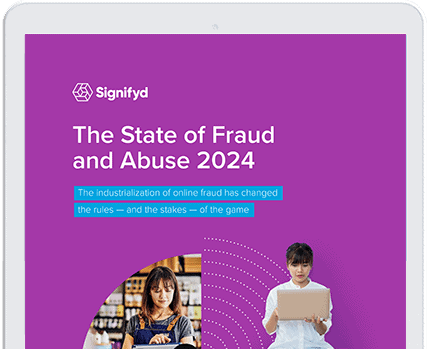London Fashion Week is more than a celebration of design and creativity. It sets the trends that fast fashion retailers race to replicate. The gap between runway and retail is shrinking, with brands launching collections inspired by luxury fashion within days. While this agility keeps consumers engaged, it has also intensified a major issue: Returns Abuse.
Retailers are caught between offering seamless shopping experiences and preventing the growing problem of policy abuse. Consumers expect free and flexible returns, but behind the scenes, fraudsters, serial returners and organised groups are exploiting these policies.
Fast fashion thrives on immediacy, but that same speed fuels unsustainable returns behaviours. Shoppers over-order, buying multiple sizes or styles with the intention of returning most of them. Some wear items once for social media or special events before sending them back, a practice known as wardrobing. Others falsely claim their order never arrived, return counterfeit goods, or abuse refund policies, leading to mounting losses.
The scale of the issue is clear. Serial returners in the UK sent back £6.6 billion worth of items in 2024, accounting for nearly a quarter of all returns. Retailers like ASOS and H&M have already adjusted their policies. ASOS, for example, now charges a £3.95 fee for returns unless customers keep items worth at least £40, a move designed to curb habitual returns without alienating loyal shoppers.
Abuse is not limited to individual consumers. Fraudsters are using Telegram and other encrypted platforms to share tactics, identify vulnerable retailers and exploit refund policies. Exclusive fast fashion collections, often launched around major industry events like London Fashion Week, are particularly at risk. Fraudsters bulk buy trending items using stolen payment details, resell them, then file refund claims under different identities. Others swap authentic goods for counterfeits before returning them, making it difficult for brands to recover losses.
Retailers looking to reduce returns abuse without alienating loyal customers should consider moving away from blanket return policies and taking a more data-driven approach. By analysing customer behaviour and purchase history, brands can identify high-value shoppers who should be rewarded with greater flexibility, while also recognising patterns of repeat abuse that need tighter controls.
With this insight, brands can take a more strategic approach to returns. Offering free shipping, extended return windows, or exclusive discounts to their most trusted customers. Or by introducing tiered return systems, where return policies are adjusted based on a shopper’s history, ensuring that flexibility is granted where it benefits both the customer and the business.
Abuse and fraud prevention are increasingly overlapping. Fraudsters do not just use stolen credit cards. They also manipulate return processes for profit. Retailers that integrate fraud detection with returns management are far better positioned to stop this behaviour early. AI-powered risk assessments can flag suspicious refund requests, detect accounts linked to previous abuse, and apply additional verification for high-risk transactions.
Returns are a necessary part of fashion retail, but they should not be a drain on profitability. The brands that will thrive are those that strike a balance, offering a seamless experience for genuine customers while putting smart controls in place to prevent abuse. Personalised experiences are not just a way to improve customer retention but also an effective strategy to protect revenue and maintain trust.
London Fashion Week may define the next wave of fashion trends, but for retailers, the real challenge is keeping pace with both consumer expectations and the evolving tactics of fraudsters. By leveraging data, brands can create a smarter, more sustainable approach to returns that rewards the right customers and minimises risk.









